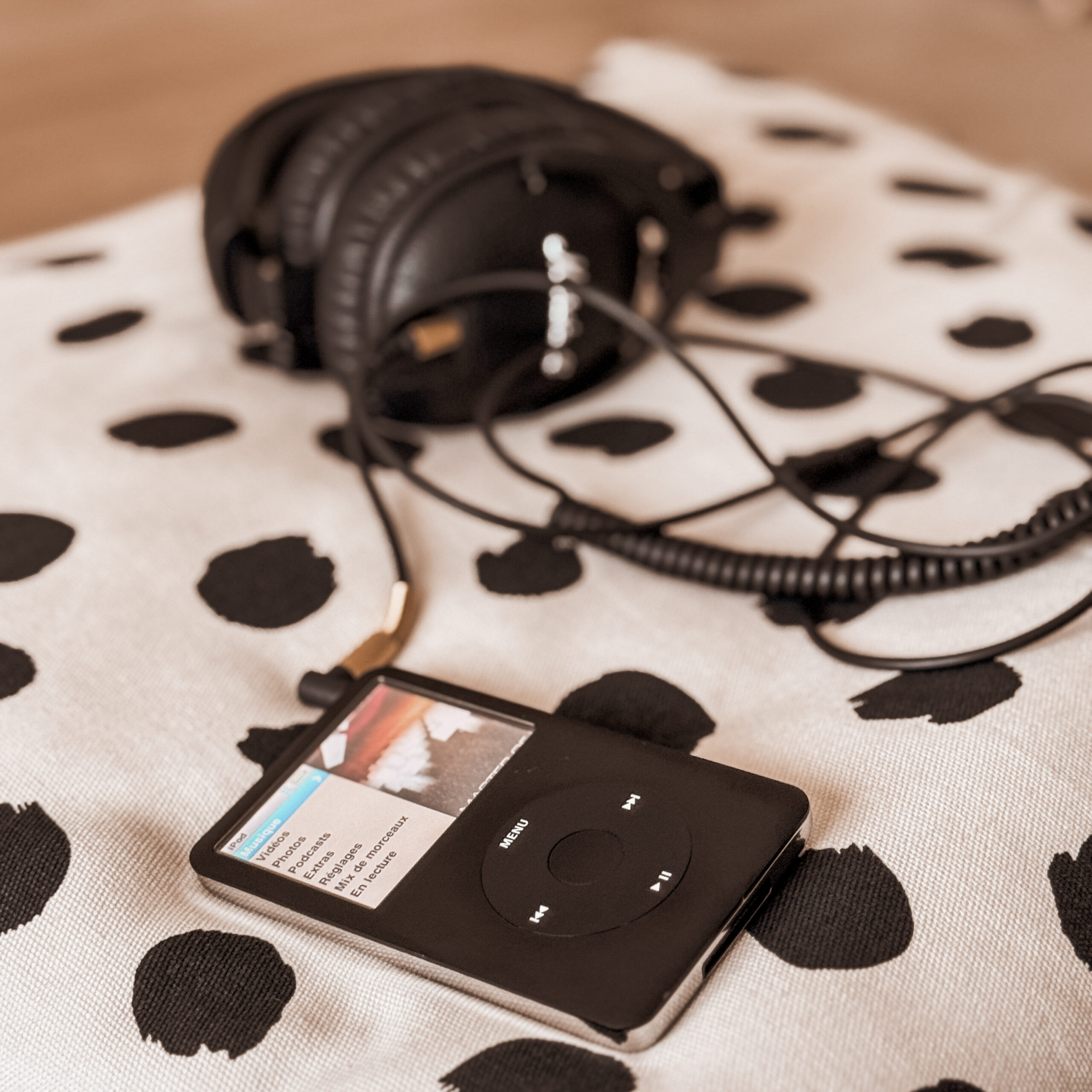“Music is thinking noise.”
Victor Hugo, Fragments.
Hello, young Padawan
I hope your summer is going well, happy hour, shellfish, and seafood. Today, we’re going to talk about a phenomenon that’s gaining momentum among young people: slow tech. For those who haven’t yet heard this trendy new newspeak, it’s about preferring to use technological objects from the 90s and 2000s to slow down, reduce your dependence on social media, no longer have your time wasted on Instagram or TikTok, and get back to a life worthy of the name, while still being able to access a little technology, unlike the decreasing pals who cut themselves off from anything that has a screen, near or far.
Many of us are aware of the hours, days, and years of life wasted because of the internet. And this movement really resonated with me because, for once, it’s not binary movement, like « all-or-nothing ». They buy old Blackberries or Nokia 3310s, so they can still send text messages and make calls, they have a digital or film camera, they no longer have tablets or Netflix but a TV to watch DVDs occasionally, a slightly obsolete but functional computer to do administrative procedures, and, and above all…. who says old mobile phone from the 90s-2000s, says no music, and this is where the subject of our article of the day opens: how do our low-tech young people listen to music?
Slow-tech and music
You know how “slow-tech” I am when it comes to listening to music—for those of you who are late or two asleep by the radiator, I’m talking about this article here—I can tell you that I was more than delighted to see that other people were interested in our old listening methods.
In the article cited above, we talked about vinyl records and audio cassettes via the Walkman, the musical “tech” of the 60s and 80s. And then Apple launched its revolution that dethroned the good old Walkman (and the Discman, the same one but with CDs!), namely the iPod. Oh yes, nostalgia, when you hold us!
The iPod, that little technological gem that fits in the palm of our hand and allows us to listen to hours and hours of music, when we needed three shoeboxes of audio cassettes, or two CD folders (remember when you used to change the CD in your car radio at the traffic light, while flipping through your CD folder?!).
I still have my iPod , just had the battery changed and it works like new, and I still enjoy using it as much as ever.
Besides returning to wired listening, which is much healthier for our little brains, I really like that young people are getting into iPods, because, by arousing their curiosity about old ways of listening to music, this little object could take them to the next stage, namely vinyl or cassettes or CDs, in short, it could be a real gateway to physical music for them.
Slow-tech is also political
Thus, music is no longer just a mere commodity. It becomes precious again, requires patience, and allows for discovery since we no longer frantically skip tracks. We can relearn how to listen to music, respecting the artists who crafted albums and, through this, told us a story, immersing us in a universe for just an hour. Thus, by re-listening to our albums from the first to the last track, we discover, and sometimes fall in love with, a piece that wasn’t necessarily highlighted by the major labels.
The cover art, the photographic booklet, and the lyrics added to the album were, and fortunately still are for some, a way for artists to enhance the immersion of audiophiles by bringing them an extra dimension. Ah, that magical moment of discovering the booklet and album cover—awesome!
Owning music without necessarily being a collector, for pleasure, of course, useful in case of a power outage, like in Spain a few months ago, yes, but above all because the more time passes the less we own, while paying more and more (Netflix subscriptions, Spotify, etc.), as Klaus Schwab said: “you will no longer own anything but you will be happy”, but not only that, there is even worse.
As discussed in my previous article here, the prevailing censorship also reminds us to own genuine works while respecting the authors and history. For example, I own a copy of G. Orwell’s 1984 from the early 1960s (with the passages now removed, ed), the original, untitled version of A. Christie’s famous novel (Ten Little xxx, ed), Prince’s entire album Gold Experience (with the song “The Most Beautiful Girl in the World,” now censored, ed), and much more.
How can we understand life, and especially our past, if we cover up what we don’t want to see? How can we understand history if we look at it with the eyes and morality of our generation? Are we aware that we are the barbarians of future centuries? Have we become so stupefied by the media, globalism, and political correctness? I hope not, I continue to hope not.
So what if we stopped all our subscriptions, to consume less but more strategically, and buy our favorite music, our favorite movies, our favorite books?
That’s it for this week’s short article. And for those who want to slow down with technology but don’t know how to go about it, I recommend the book “Digital Minimalism” by Cal Newport, published by Portfolio Penguin.
Have a great weekend and see you next Friday!
XO 🎵
Sources : Digital Minimalism, Cal Newport, ed. Portfolio Penguin.

